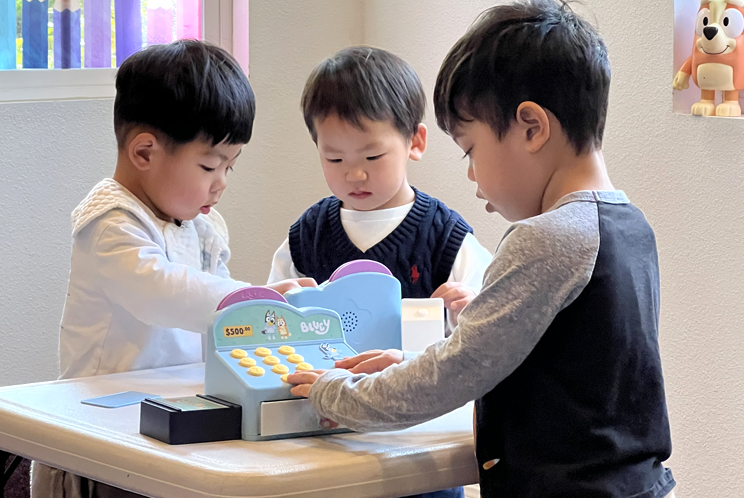Did you know that children who develop strong adaptability skills are 70% more likely to succeed academically and socially? In today’s fast-changing world, flexibility and resilience are essential for kids to navigate challenges confidently.
After-school programs offer the perfect chance to build these vital skills through engaging activities and supportive routines. This post will share practical strategies to help parents and educators boost children’s adaptability and resilience for long-term success.
Contents
- 1 Understanding Flexibility and Resilience in Child Development
- 2 The Role of After-School Programs in Enhancing Adaptability
- 3 Key Strategies to Foster Flexibility and Resilience
- 4 Benefits of Developing Flexibility and Resilience
- 5 Choosing the Right After-School Program
- 6 How Parents Can Support Flexibility and Resilience at Home
- 7 FAQs About Developing Flexibility and Resilience in Children
- 7.1 At What Age Should Parents Start Focusing on Flexibility and Resilience Skills?
- 7.2 Can After-School Programs Make a Significant Difference?
- 7.3 What Are Common Signs That a Child Needs Extra Support?
- 7.4 How Can Schools Complement After-School Efforts?
- 7.5 How Can Parents Reinforce Flexibility and Resilience Skills at Home?
- 8 Final Thoughts
Understanding Flexibility and Resilience in Child Development
Developing flexibility and resilience takes time and practice, but with consistent support, children can strengthen these essential skills that will serve them throughout life.
What Is Flexibility in Children?
Flexibility in children refers to their ability to adapt to changes, switch between tasks, and respond effectively to new or unexpected situations. For example, a flexible child might adjust smoothly when a favorite activity ends early or plans change.
This adaptability is crucial in learning environments, where new concepts and routines constantly emerge, and in social settings, children navigate different personalities and group dynamics.
Defining Resilience and Its Importance
Resilience is the capacity to recover from setbacks, challenges, or stressful situations. Children with strong resilience can cope with disappointments, such as not winning a game or struggling with schoolwork, without becoming overwhelmed.
This skill directly supports mental well-being by fostering a positive mindset, reducing anxiety, and encouraging problem-solving even in difficult circumstances.
The Developmental Timeline for These Skills
Flexibility and resilience emerge in early childhood and continue to develop through adolescence. Critical early experiences, like supportive parenting, exposure to manageable challenges, and opportunities for social interaction, shape these traits. Understanding when and how these skills develop helps parents and educators tailor their support to each child’s unique growth stage.
The Role of After-School Programs in Enhancing Adaptability
After-school programs play a vital role in helping children develop adaptability by offering diverse experiences that challenge them while providing the support they need to learn and grow.
Enrolling your child in after-school programs for kids that focus on emotional intelligence can provide additional support in building flexibility and resilience.
Structured vs. Unstructured Activities
Structured activities, like team sports or skill-building workshops, provide clear goals and rules that teach children how to follow directions and adjust within set boundaries, strengthening focused flexibility.
Unstructured activities like free play or creative arts encourage exploration and spontaneous problem-solving, fostering open-ended adaptability. Both types offer valuable opportunities for children to practice flexibility in different ways.
Creating Supportive Environments
After-school programs that provide safe, supportive spaces allow children to take risks without fear of harsh judgment, encouraging them to learn from mistakes and build resilience.
Mentors and peers play a crucial role by offering guidance, positive feedback, and modeling adaptive behaviors. They create a community where children feel empowered to grow emotionally and socially.
Key Strategies to Foster Flexibility and Resilience
Building flexibility and resilience in children requires diverse approaches that challenge their thinking, encourage social skills, and nurture emotional regulation. After-school programs and parents can support well-rounded emotional growth by integrating problem-solving, teamwork, creativity, and mindfulness.
Encouraging Problem-Solving Activities
Puzzle challenges and brain teasers stimulate children’s critical thinking by encouraging them to explore multiple solutions and persist through difficulties.
Real-life scenario role-playing allows kids to practice adapting their responses to everyday social and emotional challenges. Open-ended questions prompt reflection, helping children develop flexible thinking by considering different perspectives and outcomes.
Children grow strongest when they learn to solve problems independently and reflect on their experiences, which builds a foundation for adaptability and resilience.
Promoting Social Interaction and Teamwork
Cooperative games that require children to adjust to changing rules or roles foster adaptability and teach valuable collaboration skills. Conflict resolution workshops provide tools for constructively managing disagreements, enhancing emotional regulation, and interpersonal understanding.
Group projects with rotating roles expose kids to different responsibilities, encouraging flexibility and empathy within a team setting. Through social interaction, children practice real-world skills that build emotional intelligence and prepare them for diverse relationships.
Providing Opportunities for Creative Expression
Arts and crafts projects inspire innovative thinking and allow children to express emotions visually, promoting emotional flexibility. Drama and improvisation exercises encourage spontaneity and quick thinking, helping kids respond confidently to unexpected situations. Music and movement activities develop physical coordination and emotional expression, supporting overall adaptability.
Creative outlets engage different brain parts, enriching a child’s capacity to adapt and express themselves authentically.
Implementing Mindfulness and Emotional Regulation Practices
Basic yoga and breathing exercises teach children to calm their bodies and minds, improving self-control and focus. Guided visualization and meditation sessions provide techniques to reduce stress and build inner resilience.
Journaling and emotional check-ins encourage children to identify and articulate their feelings, fostering self-awareness and emotional clarity. Mindfulness practices give children tools to manage their emotions, an essential skill for navigating challenges with flexibility and confidence.

Benefits of Developing Flexibility and Resilience
Developing flexibility and resilience in children offers wide-ranging benefits that support their academic, social, and life success. These skills help kids navigate challenges confidently, adapt to new situations, and build a strong foundation for lifelong learning and well-being.
- Academic Advantages: Children with strong flexibility and resilience demonstrate better problem-solving and critical thinking skills, allowing them to approach complex tasks creatively and persistently. These traits also help them handle academic pressures more effectively, manage stress, and bounce back from setbacks such as difficult tests or changes in routine.
- Social and Emotional Growth: Flexibility and resilience enhance children’s empathy, enabling them to understand and respond to others’ feelings more thoughtfully. Improved communication skills help them express themselves clearly and build stronger relationships. These skills also increase confidence and self-efficacy, empowering children to take on new challenges and trust their abilities.
- Long-Term Life Skills: Developing these traits early prepares children to thrive in changing environments, whether adapting to new schools, family situations, or social circles. Resilience equips them with coping strategies to face future challenges, fostering mental strength and emotional well-being that lasts into adulthood.
Choosing the Right After-School Program
Selecting an after-school program that effectively builds flexibility and resilience means carefully evaluating the curriculum, staff expertise, and support systems in place to nurture emotional growth.
What to Look for in Programs Focused on Flexibility and Resilience
Look for programs that include activities specifically designed to challenge children’s problem-solving and social skills, such as cooperative games, role-playing, and mindfulness exercises. The staff must have training in emotional intelligence and child development and use positive, supportive methods to encourage adaptability and resilience in every child.
Questions to Ask Program Coordinators
When speaking with program coordinators, ask how they intentionally foster adaptability through their daily routines and activities. Inquire about the resources and support available for children who struggle with change or emotional challenges, including how staff handle setbacks and promote growth in those situations.
How Parents Can Support Flexibility and Resilience at Home
Parents can actively cultivate flexibility and resilience by focusing on concrete behaviors and intentional activities that promote adaptability and perseverance in daily life.
- Encouraging a Growth Mindset: Instead of saying “You’re so smart,” praise specific efforts like “I’m proud of how hard you worked on that project.” When your child makes a mistake, discuss what can be learned from it and try the task again together.
- Modeling Adaptable Behavior: When plans change unexpectedly, talk through your calm response out loud, such as “The store is closed, so let’s find another place.” Share stories about times you faced challenges and how you adjusted, illustrating problem-solving in action.
- Creating Opportunities for Practice: Set up family challenges like building something together from limited materials or cooking a new recipe as a team. Encourage your child to join sports teams or clubs that require collaboration and quick adjustments, such as soccer or drama groups.

FAQs About Developing Flexibility and Resilience in Children
At What Age Should Parents Start Focusing on Flexibility and Resilience Skills?
Parents can start focusing on flexibility and resilience as early as preschool. Introducing simple activities like problem-solving games, role-playing, and emotional check-ins at this age helps build a strong foundation for these skills.
Can After-School Programs Make a Significant Difference?
Yes, after-school programs can significantly impact a child’s development of flexibility and resilience by providing structured opportunities to practice social skills, emotional regulation, and adaptability in a supportive environment.
What Are Common Signs That a Child Needs Extra Support?
Signs that a child may need extra support include frequent difficulty managing emotions, avoiding new challenges, feeling overwhelmed easily, or struggling with social interactions and conflict resolution.
How Can Schools Complement After-School Efforts?
Schools can complement after-school efforts by incorporating social-emotional learning (SEL) into the daily curriculum, offering a consistent approach to developing emotional intelligence alongside academic growth.
How Can Parents Reinforce Flexibility and Resilience Skills at Home?
Parents can reinforce flexibility and resilience by modeling adaptable behavior, encouraging problem-solving at home, and creating a safe environment for children to express their emotions and navigate challenges independently.
Final Thoughts
Flexibility and resilience are critical aspects of children’s emotional intelligence, directly impacting how they handle challenges and adapt to new situations.
After-school programs emphasizing these skills provide children practical opportunities to practice problem-solving, manage emotions, and work collaboratively. Look for programs that include role-playing, team games, and mindfulness exercises, specifically targeting flexibility and resilience.
Parents can also play a key role by seeking out these programs and reinforcing these skills at home through structured activities and open conversations.
Parents who focus on emotional intelligence in kids today ensure their children are better prepared for tomorrow’s emotional and social challenges.
We’d love to hear your thoughts! How do you support your child’s flexibility and resilience at home? Comment below and share your experiences or questions, we’re here to help!